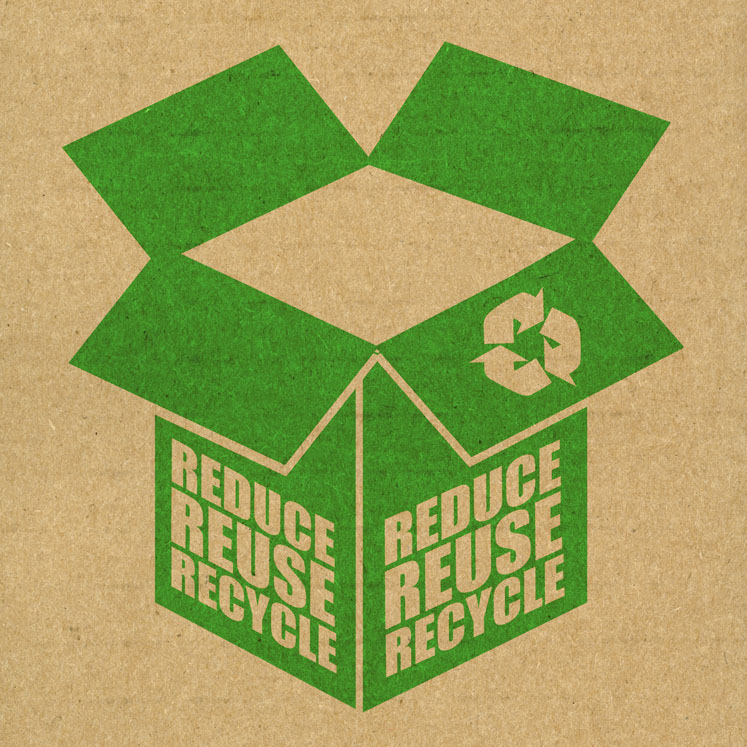Like so many other industries, the life sciences sector has had a relationship with sustainability that, historically at least, hasn’t so much harmonised as endured. In the development and production of pharmaceuticals and equipment, natural resources have been consumed, thereby making an unfortunate contribution to the planet’s health in the process of protecting our own.
That said, the industry has never been a stamping ground for eco non-conformism. In fact, in this day and age, quite the reverse is true; many pharma, diagnostic and MedTech companies are very much instigators of change.
The modern environmental protection movement started in earnest in 1956 with the Clean Air Act. Our very first Earth Day was in 1970. Yet, while these were undoubtedly landmark moments, it wasn’t until the early 1990s that the sustainability ideology seriously started to snowball.
As businesses began to use the environment as a focal point for their brands, the topic went from being on everybody’s lips to being on almost everybody’s agenda. “Green,” shall we say, was go.
Embracing the environment
Since the new millennium, the most ethical pharmaceutical organisations have gone about shedding any perceived image hangovers by setting targets designed to reduce the impact of their operations on the environment. These goals have been enforced with some purpose.
Their implementation has had a ripple effect, reaching beyond their core business to partners, suppliers and vendors. Where logistics has been concerned, leading temperature control packaging (TCP) companies have adjusted parts of their modus operandi in a mission to respect these initiatives.
Taking their first steps into a world of paper-based products, they have developed a range of shipping solutions that have kept in lockstep with any environmental or regulatory vicissitudes. But in an industry that has a reputation for constantly evolving and pushing new boundaries, how well are these TCP solutions currently stacking up?
The recycling and upcycling conventions
Traditionally, insulation materials constructed from expanded polystyrene and polyurethane foams have been adopted by TCP companies — and, in turn, by their pharma clients — for simple "ship and forget” distribution purposes, primarily because of their recyclable properties. The term recycle, however, can be interpreted in different ways.
Expanded polystyrene foams can easily be ground and reprocessed, but only into new polystyrene products, effectively recycling them. Alternatively, polyurethane products — such as insulation panels — can be repurposed or upcycled into building materials, mattresses or carpet underlays, for example.
These honourable practices, however, come with a caveat. Or, in the eyes of the end customers who inherit the responsibility for locating local recyclers, one might say a challenge.
Recycling and upcycling programmes are part of specialist networks that are not always readily available on a local landscape. Locate one … and you may find that they are not necessarily cost-effective. Inevitably, this leads to challenges in disposal, all of which can be further complicated by local environmental regulations. Look at this with a regional or global hat on and the task becomes an expanded, fragmented mosaic.

The reusable era
More recently, advanced, high-performance shippers have ensured product integrity by combining vacuum insulation panels with phase change materials that freeze and thaw within a product’s required temperature range. Reusable and robust, they offer the kind of increased thermal protection that pharma companies have been crying out for.
Being able to ship confidently has been an industry game changer. Global qualification requirements have been overcome and temperature excursions during transit have been significantly reduced.
Superstars of the TCP game they might currently be; but, even these greener, higher-performing systems necessitate secondary or tertiary uses to achieve sustainable cost-effectiveness. They also still have some impact on carbon footprint for the simple reason that they need to be returned (this can be complicated by regulations that increasingly require imported packaging to be re-exported to avoid local disposal or recycling).
Rental options have been available to circumvent these handicaps but, often, the challenge here is one of supply and demand. Being difficult to reposition after use, many of these reusable high-performance shipper ranges lead to a high-cost service provision.
Inevitably, life sciences companies with committed sustainability initiatives are looking for totally green alternatives that can be simply recycled at all locations, all around the world. This necessity has put invention to work once more.
New parameters, new demands
Although giant steps have been taken by TCP vendors with regards to the performance and suitability of their packaging systems, pharma companies are not ones to rest on their laurels. As sustainability gains ever-increasing ground, the calls for solutions that meet emerging criteria escalate in tandem.
The regulators are lending weight to this exigency, albeit from a different perspective. In an effort to remove any ambiguity concerning exactly what constitutes controlled room temperature, standardisation guidelines have been implemented to ensure the quality, safety and efficacy of products in the "store below 30 °C” category.(This temperature range encompasses both routinely dispensed prescription products and over-the-counter medicines.)
As the intention here is to promote long-term value to industry, one can consider the bar suitably raised.
Ticking all the boxes
As a consequence, meeting both corporate social responsibility (CSR) targets and fresh regulatory demands requires much more than heightened awareness and good intentions. Pharma companies who are looking at ways to operate more efficiently need new ideas that encapsulate form and function while measuring up against sustainability, regulatory and cultural criteria.
With welfare increasingly coming up for debate — whether it be around people or the planet — challenges facing TCP companies now encompass carbon and plastic neutrality. To date, greener products that have utilised environmentally friendly insulation materials have often come with limited application owing to lower insulation values. Throw a proclivity for cost savings into the melting pot and the task faced by the innovators has been a formidable one.
The “reduce, reuse, recycle, recover” mantra has become a sounding board that has gradually materialised in TCP development processes.
It has ensured the careful investigation and testing of material combinations as well as compositions of packaging systems to guarantee the kind of suitability and efficacy that’s now required: a good end-of-life story is a prerequisite for these systems.
The evolution from single use to reusable to totally recyclable TCP solutions is now well and truly under way at the innovative end of the industry. The need for sustainable packaging support in the form of a low-cost, rudimentary parcel shipper that works inside the new wide-stability guidelines, protecting temperature-sensitive goods between 2 and 25 °C, has been answered.

Cardboard: the next generation
In the quest for a panacea that satisfies regulations and the environment, the temperature control packaging industry’s best minds have turned to a tried and trusted source: cardboard. The trick has been having the ability to look at the same thing differently. By corrugating and layering the material in different configurations, incredibly effective insulation layers have been created, replacing traditional methods.
The innovative construction patterns have then been combined with temperature-regulated, water-gel cool packs to provide a thermal barrier that is effective for 72 hours. Furthermore, they are configured to form a preventive impact barrier during transit; their high shock-absorption capabilities negate the need for additional void packaging.
Critically, the more established TCP companies leverage their pedigree and experience to offer a superior level of qualification. By rigorously testing prototypes in environmental chambers against accepted industry seasonal profiles, they are in the best position possible to ensure that the wide-stability temperature range can be upheld for predefined shipping durations.
The importance of qualification cannot be overstated; the demands of pharmaceutical and diagnostics companies and clinical trials organisations must consistently meet compliance — full stop.
The net result has been the genesis of very effective, totally dependable, plastic-free insulation products for the wide-stability range products that are 100% recyclable. This allows materials to be collected in containers acceptable to, or prescribed by, local municipalities.
No specialist recycling. No extra work. No impact on the environment. And no sacrifice in performance. Not only has disposal never been easier, but eco-TCP systems of this nature can be repurposed seven times, drastically reducing their carbon footprint.
Affordable, achievable targets
The fact that consignors of temperature-sensitive goods can comfortably meet new regulatory compliance without impacting the environment is a shot in the arm for pharma organisations. That said, there’s often a price to pay for innovation. But not so this time. Surprisingly, these new ecofriendly temperature control shippers don’t cost the Earth; on the contrary, they’ve been specifically conceived to save it.
Expectant pharma and diagnostics partners can also anticipate features inherent in more traditional shippers that have been designed to reduce additional costs in shipping, warehousing and labour. Such systems arrive flat-packed to maximise storage space, are incredibly easy to condition and assemble and their lack of bulk helps optimise freight efficiency.
Yet, although the new offerings may come as music to the ears of the pharma companies, there’s another welcome crescendo building; the TCP vendors are just getting started. Cognisant of the CSR targets their pharma clients must meet, the pioneers have already taken some important steps towards expanding this new wave of innovation beyond the 2–25 °C bracket into more temperature ranges. The future pipeline looks promising.
Never has the choice of a packaging system and its supplier been more crucial. Work with an experienced vendor whose product range includes new environmentally friendly options and you’ll have taken a positive step towards having those sustainability targets all wrapped up.
